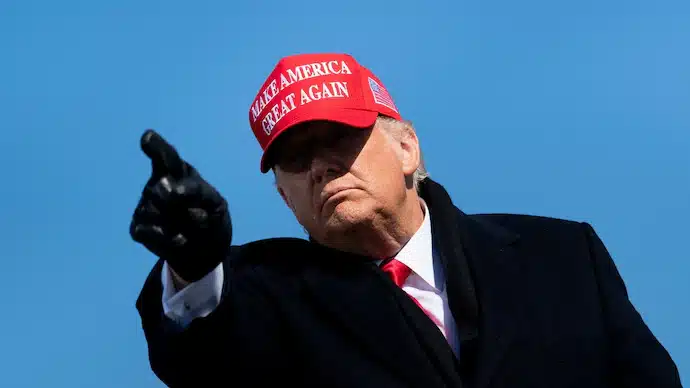Trump Unveils Agreement to Implement 15% Tariff on South Korean Imports

President Donald Trump has announced a new trade agreement with South Korea, which will impose a 15% tariff on imports from the country. This decision comes just ahead of a critical deadline, as South Korea faced the prospect of a 25% tariff if a deal was not reached. The agreement is seen as a significant achievement for South Korea, particularly in light of its substantial trade surplus with the United States, which exceeded $56 billion last year. The deal also includes a commitment from South Korea to invest $350 billion in the U.S. economy.
Details of the Tariff Agreement
The newly established 15% tariff will apply to key South Korean exports, including automobiles and semiconductors. However, other significant sectors such as steel and aluminum will face a steeper tax of 50%, consistent with the global rates set by President Trump. South Korean President Lee Jae Myung has expressed optimism about the agreement, emphasizing that it positions his country favorably compared to other nations. Importantly, South Korea managed to maintain its existing restrictions on rice and beef imports, which were crucial to protect its domestic agricultural sector. Farmers had been preparing to protest any relaxation of these controls, highlighting the sensitivity of agricultural trade in the negotiations.
Investment Commitments and Strategic Goals
As part of the trade deal, South Korea has pledged to invest $350 billion in the United States, with $150 billion earmarked for shipbuilding projects, including military vessels. This investment aligns with South Korea’s robust shipbuilding industry, which is the second largest in the world after China. By assisting the U.S. in enhancing its naval capabilities, South Korea aims to address American security concerns while simultaneously strengthening its own industrial base. Much of the investment is expected to come from funds previously promised during the Biden administration, aimed at bolstering U.S. manufacturing in sectors such as automobiles, semiconductors, and electric vehicle batteries.
Ongoing Military and Economic Negotiations
The trade agreement does not alter the existing military alliance between South Korea and the United States, which includes significant financial support from Washington to defend South Korea against threats from North Korea. However, President Trump has previously indicated that he may reconsider the U.S. troop presence in South Korea unless the country increases its financial contributions. This issue is likely to be a topic of discussion during President Lee’s upcoming visit to Washington for a summit with President Trump. Negotiators may need to address this sensitive matter alongside the tariff discussions, potentially requiring South Korea to commit additional financial resources.
Impact of Tariffs on the Global Economy
Since taking office in January, President Trump has implemented a series of tariffs on imports from various countries, asserting that these measures will bolster American manufacturing and protect domestic jobs. However, his unpredictable trade policies have raised concerns about their impact on the global economy, with critics warning that such tariffs could lead to higher prices for American consumers. As the international trade landscape continues to evolve, the implications of this agreement and the broader tariff strategy remain to be seen.
Observer Voice is the one stop site for National, International news, Sports, Editor’s Choice, Art/culture contents, Quotes and much more. We also cover historical contents. Historical contents includes World History, Indian History, and what happened today. The website also covers Entertainment across the India and World.
Follow Us on Twitter, Instagram, Facebook, & LinkedIn

